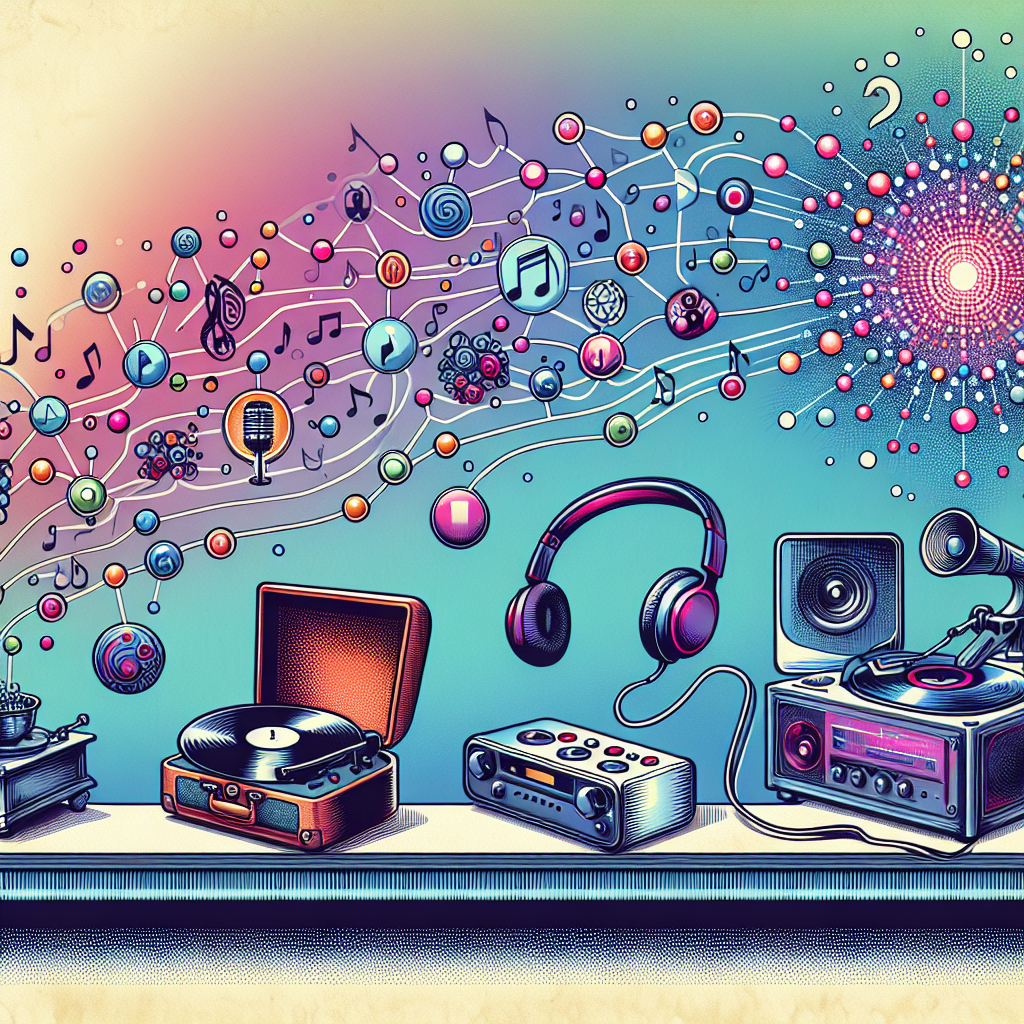The Evolution of AI-Driven Music Recommendation Systems
Music recommendation systems have come a long way since their inception, thanks to the advancements in artificial intelligence (AI) technology. These systems have revolutionized the way we discover and consume music, offering personalized recommendations based on our individual tastes and preferences. In this article, we will explore the evolution of AI-driven music recommendation systems, from their early beginnings to the sophisticated algorithms that power them today.
Early Beginnings
The concept of music recommendation systems can be traced back to the early days of the internet, when online music streaming services started to gain popularity. Platforms like Pandora and Last.fm were among the first to introduce personalized music recommendations to users, based on their listening history and preferences. These systems relied on simple algorithms that analyzed user behavior and music metadata to generate recommendations.
As technology evolved, so did music recommendation systems. The introduction of machine learning algorithms allowed these systems to become more sophisticated and accurate in predicting user preferences. With the rise of AI technology, music recommendation systems have been able to leverage complex neural networks and deep learning models to deliver highly personalized recommendations to users.
The Role of AI in Music Recommendation Systems
AI has played a crucial role in shaping the evolution of music recommendation systems. By leveraging machine learning algorithms, these systems are able to analyze vast amounts of data, including user listening history, music metadata, and social interactions, to generate personalized recommendations. AI-driven music recommendation systems can take into account a wide range of factors, such as music genre, tempo, mood, and user preferences, to deliver recommendations that are tailored to each individual user.
One of the key advantages of AI-driven music recommendation systems is their ability to learn and adapt to user behavior over time. These systems can continuously analyze user interactions and feedback to improve the accuracy of their recommendations. By leveraging advanced machine learning techniques, such as collaborative filtering and content-based filtering, music recommendation systems can provide users with a personalized and engaging music discovery experience.
The Evolution of AI Algorithms in Music Recommendation Systems
Over the years, the algorithms powering music recommendation systems have become increasingly sophisticated, thanks to the advancements in AI technology. One of the key developments in recent years has been the use of deep learning models, such as neural networks, to improve the accuracy and relevance of recommendations. These models are able to analyze complex patterns in user behavior and music data to generate highly personalized recommendations.
Another important development in the field of music recommendation systems is the use of collaborative filtering techniques. Collaborative filtering algorithms analyze user interactions and preferences to identify patterns and similarities between users, allowing the system to recommend music that is likely to be of interest to a particular user based on the preferences of similar users. This approach has proven to be highly effective in improving the accuracy of recommendations and enhancing the overall user experience.
FAQs
Q: How do music recommendation systems work?
A: Music recommendation systems use algorithms to analyze user behavior, music metadata, and social interactions to generate personalized recommendations. These systems can take into account factors such as music genre, tempo, mood, and user preferences to deliver recommendations that are tailored to each individual user.
Q: How accurate are music recommendation systems?
A: The accuracy of music recommendation systems can vary depending on the algorithms and data used. AI-driven music recommendation systems are able to learn and adapt to user behavior over time, which can improve the accuracy of recommendations. However, it is important to note that no system is perfect, and there may be instances where recommendations are not entirely accurate.
Q: How do AI algorithms improve music recommendations?
A: AI algorithms, such as deep learning models and collaborative filtering techniques, are able to analyze vast amounts of data to generate highly personalized recommendations. These algorithms are able to identify complex patterns in user behavior and music data, allowing the system to deliver more accurate and relevant recommendations to users.
Q: Are music recommendation systems only based on user preferences?
A: Music recommendation systems take into account a wide range of factors, including user preferences, music genre, tempo, mood, and social interactions, to generate recommendations. These systems use a combination of algorithms to analyze user behavior and music data in order to deliver personalized recommendations to users.
In conclusion, the evolution of AI-driven music recommendation systems has transformed the way we discover and consume music. These systems have become increasingly sophisticated, thanks to the advancements in AI technology, allowing them to deliver highly personalized recommendations to users. By leveraging advanced machine learning algorithms, music recommendation systems are able to analyze vast amounts of data and generate recommendations that are tailored to each individual user. With the continued advancements in AI technology, we can expect to see even more innovation in the field of music recommendation systems, offering users a truly personalized and engaging music discovery experience.

